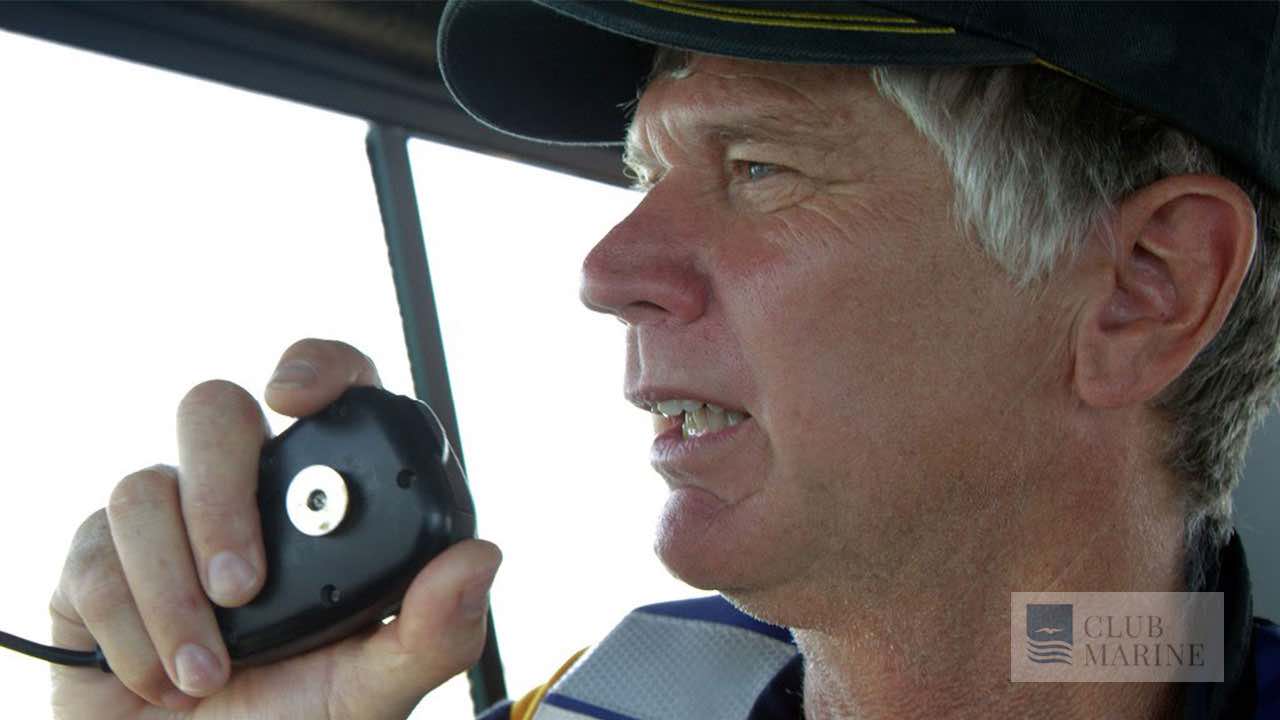
Steve Lague: So, talking about marine radios, run us through the different types and how important they are to have on your boat, and working.
Doug King: Look, they're extremely important and it's extremely important to have them working and that you know how to use them, because they're your safety, they're your lifeline. If anything goes wrong, that's how you're gonna get help to you.
There's the VHF radio, which is the most commonly used, and this is the one that is predominantly monitored by all the marine search and rescue agencies around Australia. There's the medium frequency radio that most boats usually have those, but they haven't got the range that the VHF radios have got. And, of course, there's the HF radios that people going long distances in yachts and all that sort of stuff and need to have to stay in contact.
Steve Lague: So, with the VHF radio, is it simply just a matter of going to the shop and buying one, or is there a bit more to it?
Doug King: Look, you can go into the shop and buy one, but now with the new DSC, the Distress Calling System in them, you need to register those with AMSA and you'll get an absolute unique code for those VHF radios. You also need to get a license and they're readily available now, through a lot of sources. There's the new Australian wireless qualification, that is a very, very easy course. It's nationally accredited and everyone that has a VHF radio should go and learn how to use it correctly.
Steve Lague: So, Doug, if you do need to use your radio, are there different calls, for different situation?
Doug King: Yes, absolutely. There's a Mayday call and this is a call that is monitored Australia wide by a lot of agencies and you use the Mayday call if you are in imminent or extreme danger. Either you, or your vessel.
CG7 Skipper: Mayday, Mayday, Mayday, this is C-G-7, C-G-7, C-G-7.
Coastguard Melb: C-G-7 this is Coastguard Melbourne. What is the nature of your emergency, over?
CG7 Skipper: Mayday, this C-G-7, we are one nautical mile off Carrum. We have hit a submerged object and are taking in water, over.
Coastguard Melb: C-G-7, Coastguard Melbourne, are you staying with the vessel, over?
CG7 Skipper: That is affirmative, we will stay with the vessel as long as possible, over.
Coastguard Melb: C-G-7, Coastguard Melbourne, we are dispatching a vessel to you immediately, stand by.
Doug King: Then there's the Pan call, and this is for urgency, you require urgent assistance, like if you've lost a propeller and you need a tow, you can issue a Pan call. You can also use the Pan call, if you see another vessel or aircraft in trouble. You can use that to attract attention and then there's the Sécurité call, and this is one you put out if you come across a navigation hazard, i.e. a container or something floating in the water.
WE'RE HERE TO HELP
FOLLOW US ON
*Terms and conditions apply
Any advice here does not take into account your individual objectives, financial situation or needs. Terms, conditions, limits and exclusions apply. Before making a decision about this insurance, consider the Product Disclosure Statement (PDS)/Policy Wording and Supplementary PDS (if applicable). Where applicable, the PDS/Policy Wording, Supplementary PDS and Target Market Determination (TMD) for this insurance are available on this website. We do not provide any form of advice if you call us to enquire about or purchase a product.
Club Marine Limited (ABN 12 007 588 347), AFSL 236916 (Club Marine) issues this insurance and handles and settles claims as agent for the insurer Allianz Australia Insurance Limited (ABN 15 000 122 850) AFSL 234708 (Allianz). Club Marine is a related body corporate of Allianz. Copyright © 2024 Allianz Australia Limited